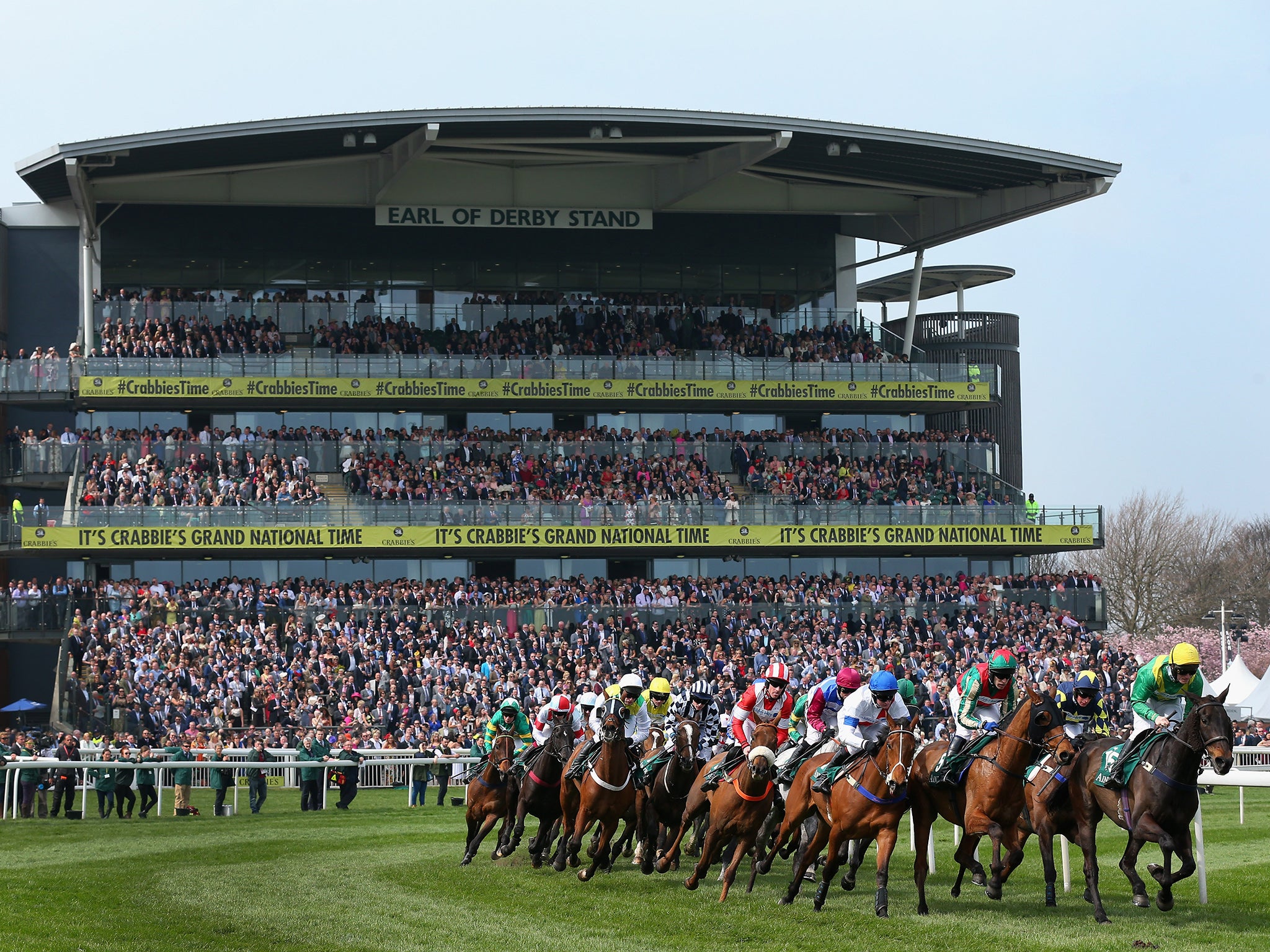Horse-racing contributes billions to our economy - it would be absurd to ban the Grand National
Any stable lad or lass, among the 85,000 people whose livelihoods depend on racing, will tell you that a horse knows when it has won

Your support helps us to tell the story
From reproductive rights to climate change to Big Tech, The Independent is on the ground when the story is developing. Whether it's investigating the financials of Elon Musk's pro-Trump PAC or producing our latest documentary, 'The A Word', which shines a light on the American women fighting for reproductive rights, we know how important it is to parse out the facts from the messaging.
At such a critical moment in US history, we need reporters on the ground. Your donation allows us to keep sending journalists to speak to both sides of the story.
The Independent is trusted by Americans across the entire political spectrum. And unlike many other quality news outlets, we choose not to lock Americans out of our reporting and analysis with paywalls. We believe quality journalism should be available to everyone, paid for by those who can afford it.
Your support makes all the difference.Around this time of year without fail, horse-racing simultaneously receives great attention and great criticism. The Grand National, of course, is its most extreme form.
The way in which the unique race captures global attention, reaching an audience of up to 600 million, grants unwarranted precedence to some misplaced views.
The hunger for drama along with the chance to make money from large odds created the Grand National we see today. As the public started becoming unhappy with the race, horse-racing responded. As a result, the Grand National is now safer than ever.
Equine fatalities are without doubt the saddest part of the sport, and anyone who fails to mourn the loss of a participant could never call themselves a racing fan.
But the fact of the matter is that alterations to the fences in 2013 have resulted in no fatalities during the race’s last three years. Timber frames have been replaced with plastic birch, making all the obstacles much more forgiving.
The course itself is used on occasions when the world isn’t watching and still the figures indicate progress and a high standard of safety. From the ten races run over the Grand National fences in the last two years, there has been just one fatality from 261 runners.
Any sport involving speed and athleticism has an inherent danger of injury that must always be managed. When £1m is up for grabs, there will always be risk - one that racing is transparent about and committed to reducing.
The equine fatality rate in British Racing has fallen by one third to 0.2 per cent within the last 20 years, according to the sport’s governing body, the British Horseracing Authority.
The idea of abolishing the Grand National or even the wider industry is absurd. Not only does the sport contribute an estimated £3.45bn to our economy, largely from rural areas, but of the roughly 1m strong horse population, racehorses are the best looked after 2 per cent in the country.
The sport is strongly regulated, ensuring the highest possible standards for the 6,000 people providing excellent care to the 14,000 horses in training, standards that far exceed those demanded by animal welfare legislation. Organisers routinely work with organisations such as the RSPCA and World Horse Welfare.
The amount of money bet and won on the race can unfairly trivialise the effort and care that has gone into every runner’s preparation. The tireless attention and affection that precedes the Grand National is easily forgotten in the thrills and spills of a unique and fair contest.
At the heart of horse-racing is a fascinating sporting competition, with willing and admirable contenders that are treated humanely and affectionately but their jockeys.
Disbelievers need only look at a winning racehorse; any stable lad or lass, among the 85,000 people whose livelihoods depend on racing, will tell you that a horse knows when it has won.
As renowned racing journalist Alastair Down put it, “We strike a bargain with horses - not a devil's pact.”
Join our commenting forum
Join thought-provoking conversations, follow other Independent readers and see their replies
Comments